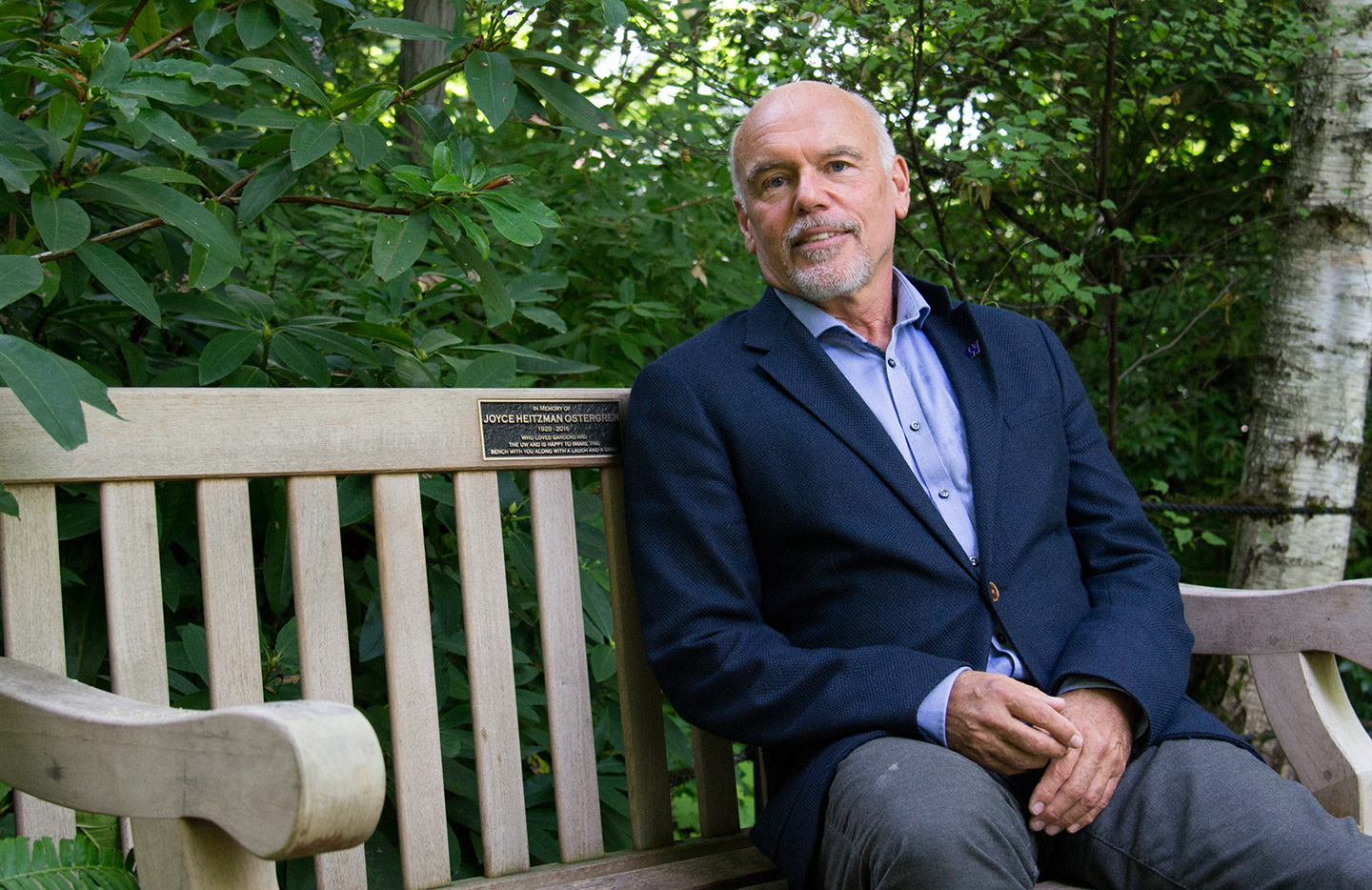More than 4,700 miles is a long way to travel, but Rolf Hapel has a world of expertise to share.
Hapel, an internationally recognized leader in public libraries, joins the University of Washington Information School this fall as its next Distinguished Practitioner in Residence, focusing on the future of libraries.
Since 2006, Hapel has served as director of Citizens’ Services and Libraries in Aarhus, a city of approximately 340,000 people in central Denmark. Previously, he worked in four Danish cities as a librarian, deputy manager and director of public services, and became director of Aarhus Public Libraries in 1994. He holds a master’s degree in Digitization and Public Administration from Aarhus University.
Hapel is a frequent speaker internationally on topics such as library development, digitization and strategic and tactical approaches for creating futures for libraries. He served as examiner for the MLIS students of the Royal School of Library and Information Science from 2002-10 and was an adjunct professor there from 2006-11.
With all he has accomplished in the librarianship field, Hapel sees his iSchool appointment as a chance to give back to the profession as he instructs and works with a new generation of librarians.
“I think I have some experiences and ideas to share, and it’s a perfect way to end my career,” Hapel said. “Teaching and discussing with young people who can see themselves in this field will be enormously interesting for me. I’m really looking forward to discussions and listening to viewpoints and trying to give my own perspective.”
The Distinguished Practitioner in Residence is funded by a 10-year, $1.4 million grant from the Bill & Melinda Gates Foundation. The grant provides for up to five professors of practice, with each serving for two to three years and bringing a fresh perspective from the library world to the academic one. The professor of practice role is one of the ways in which the iSchool is examining the state of libraries and shaping their future. Professors of practice typically come from outside academia to lend their experience and provide a practical perspective to scholarly pursuits.
Susan Hildreth, who came to the iSchool in 2016 as the first person to serve in the role, said the school is very fortunate to find a successor the caliber of Hapel.
“Rolf is an expert in bringing design thinking to the library world and will advance the iSchool’s commitment to the successful future of libraries,” Hildreth said. “Rolf’s tenure will provide an exciting opportunity for UW iSchool students, faculty and staff to interact with a true library visionary.”
Hildreth noted that Hapel was instrumental in the development of Dokk1, a 300,000-square-foot structure inaugurated in 2015 that is the largest public library in Scandinavia. The innovative library and cultural center brought in citizens and organizations to participate in the design process, and is paired with municipal public services, theaters and businesses. The International Federation of Library Associations and Institutions named Dokk1 its public library of the year in 2016.
As head of civic services in Aarhus, Hapel said he serves as a “gateway” between the public and government services, which have moved entirely online in Denmark. Educators and librarians there share the task of helping people adapt to a digitized society.
“That enormous citizen enlightenment process is really interesting,” Hapel said. “Citizens bring their own expertise, and experts are trying, in cooperation with the citizens, to create these services. I think the libraries as an arena for that kind of development is really what it’s all about in the future.”
Hapel foresees libraries taking an expanded role in civic engagement in the U.S. as well.
“When people think of libraries, we need them to not be too fixated on the physical artifacts – books – but more thinking of libraries as lifelong learning campuses, cultural exchange campuses, places for democratic dialogue,” he said. The U.S. has a tradition of the public library as a very important entity, creating justice and democracy and exchange and enlightenment.”
During his time at the iSchool, Hapel will develop and shape curriculum, teach courses, and conduct a research project that focuses on the future of libraries. He will also serve on the Master of Library and Information Science program committee and the advisory committee for the iSchool’s Technology and Social Change Group, a key partner in the Gates Foundation’s Global Libraries initiative.
While working full-time in academia will be new for Hapel, the scenery won’t be entirely different. He’s visited Seattle more than 10 times over the years and likens the landscape to one relatively close to his home.
“Denmark is nice, but very flat and agricultural,” he said. “To me, Seattle resembles Norway in Scandinavia – the same type of landscape, and I love that. Norway has these rocks and cliffs and forests and the fjords. I’m told and I’ve seen with my own eyes that there are very beautiful surroundings in Seattle.”
